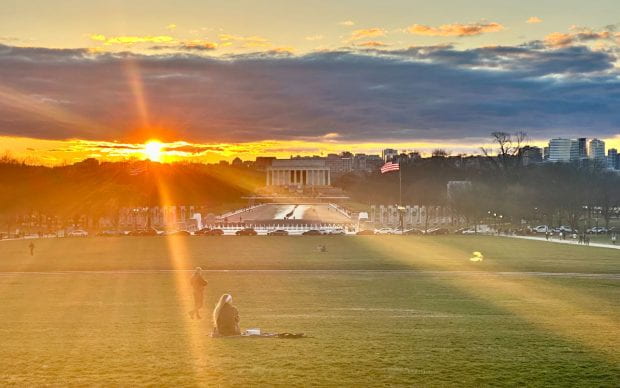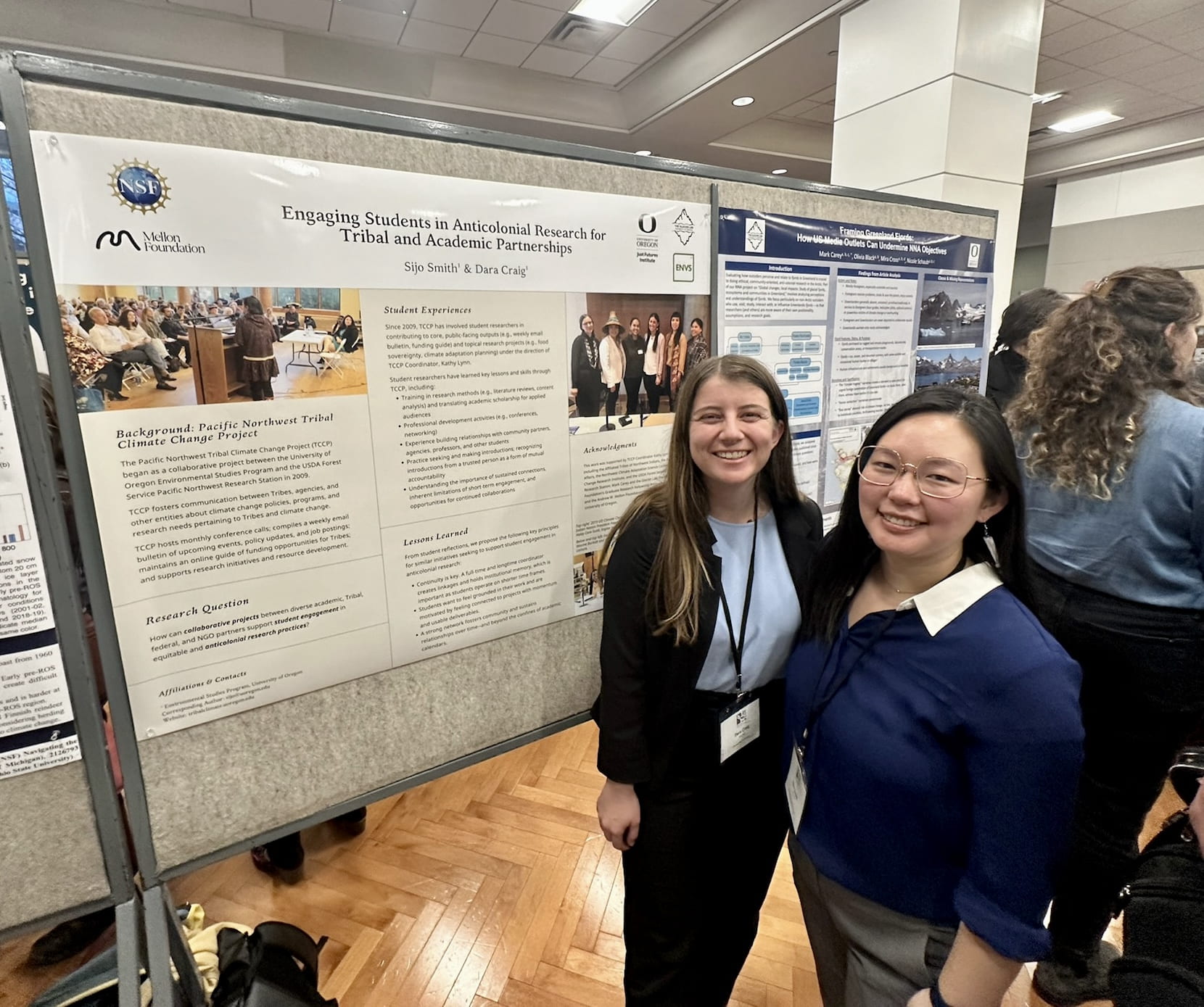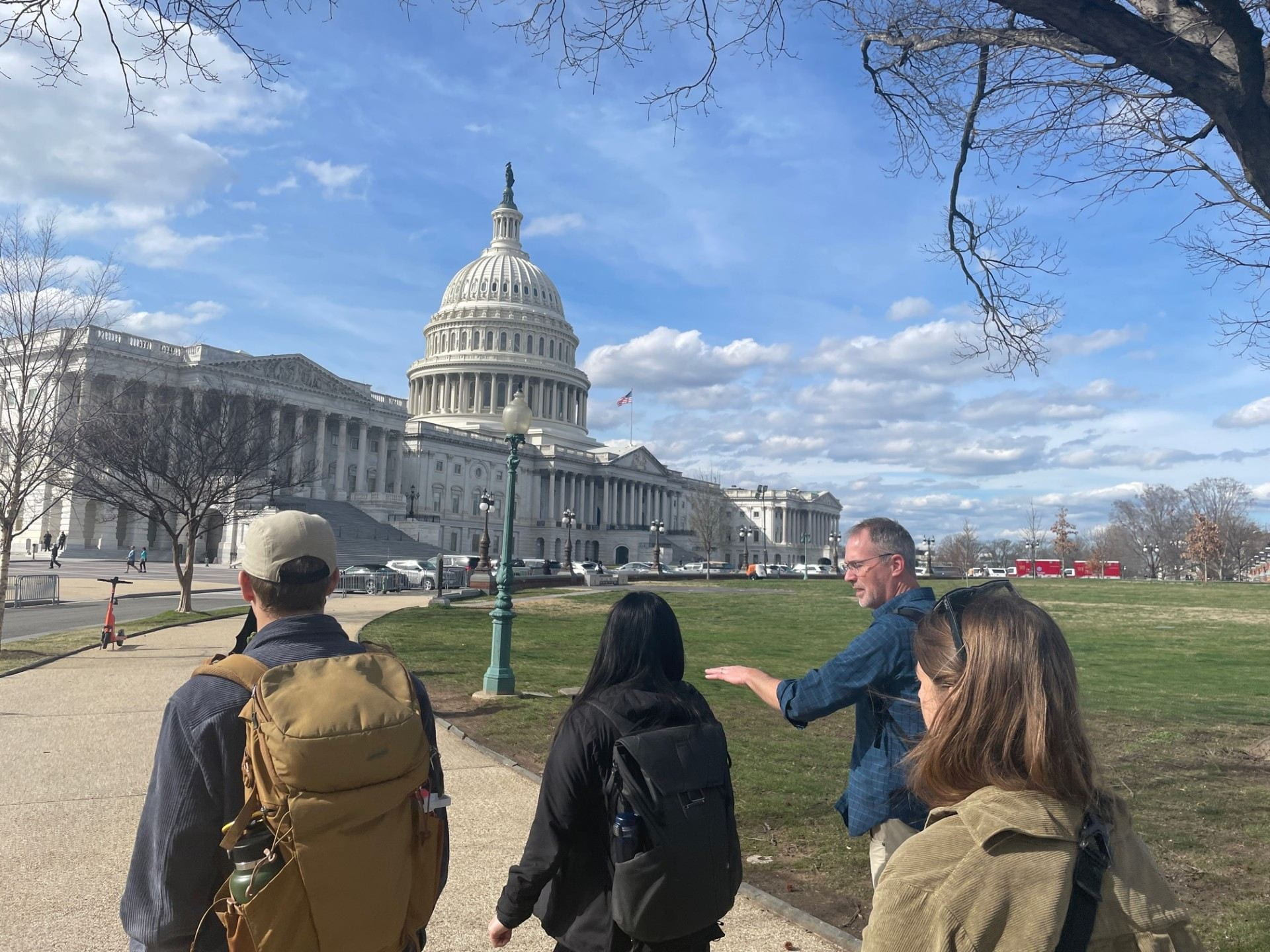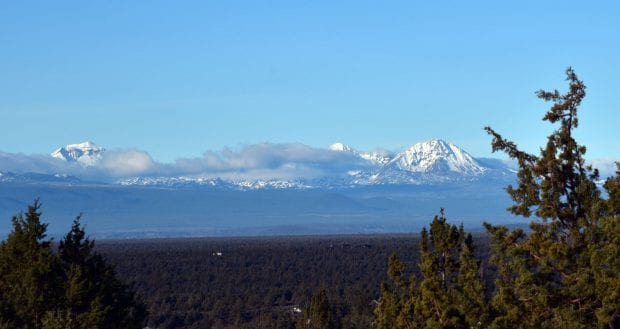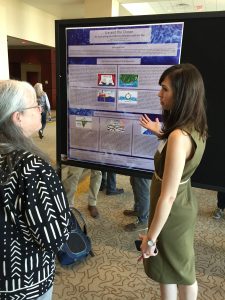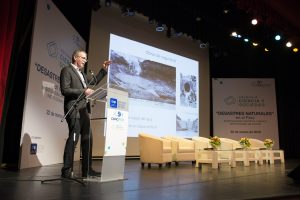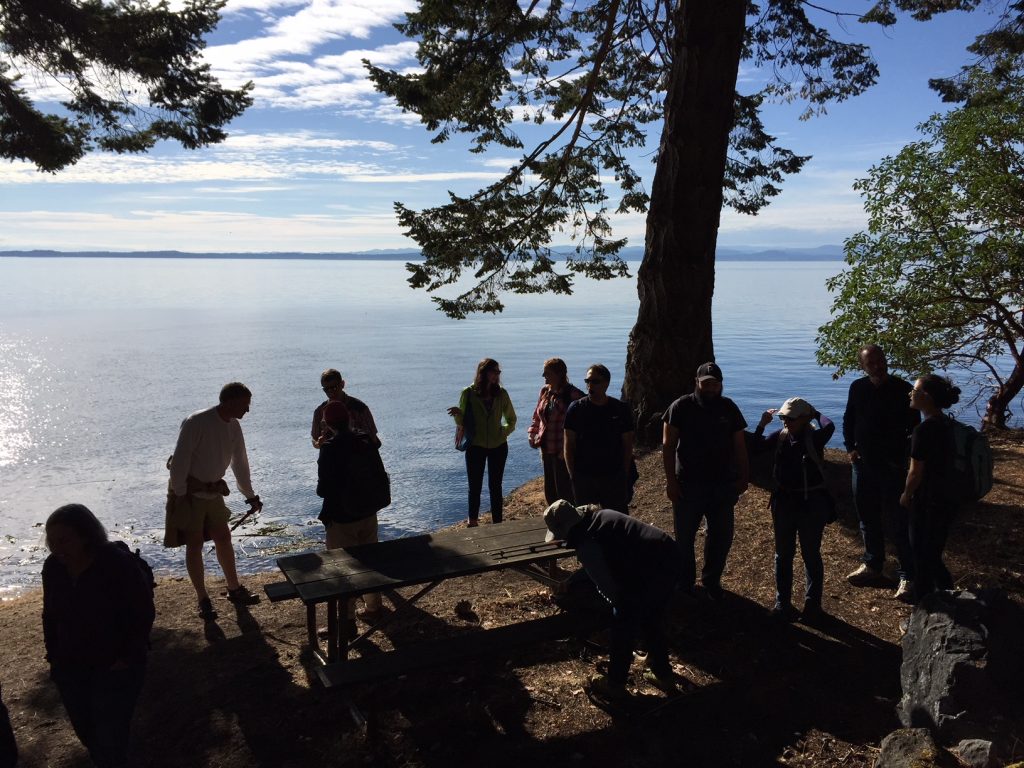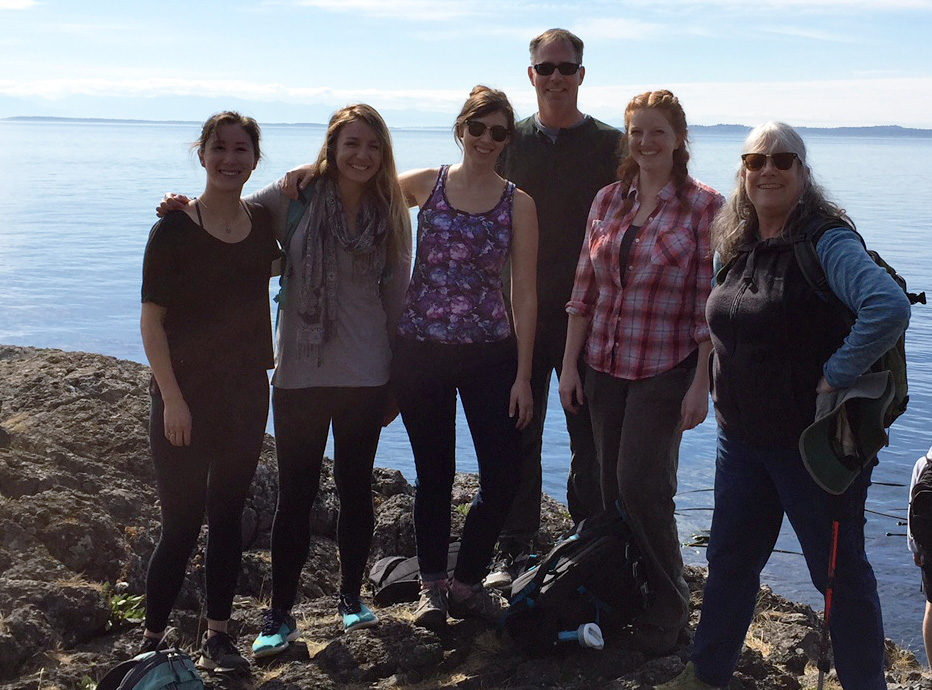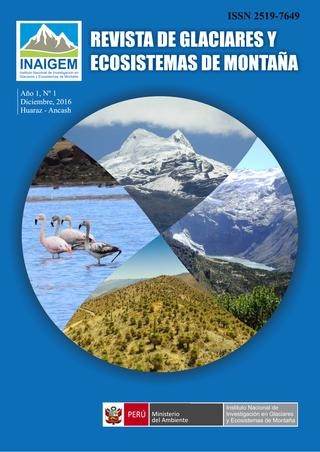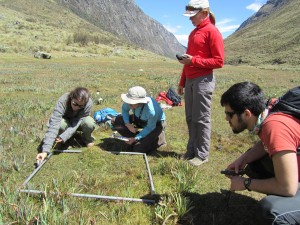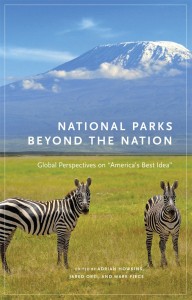Since 2021, when the Just Futures Institute at the University of Oregon was formed with funding from the Andrew W. Mellon Foundation, students like Dara Craig and Sijo Smith in the Glacier Lab have been working on an initiative related to climate justice and Tribal communities. The project extended work that Mark Carey and Kathy Lynn had been doing since 2012 through the Climate Change and Indigenous Peoples Initiative. But with the Mellon funding to support graduate students full time, and with the impetus through the Just Futures Institute to expand work on racial and climate justice in the Pacific Northwest, graduate students within and beyond the Glacier Lab have spent the last three years working much more substantially than ever on these issues.
A new StoryMap called “Engaging Graduate Students in Building a Just Climate: Stories and Reflections from a Climate Justice Initiative” explains how this work has expanded and continued, thanks to student energy and leadership. Designed by Glacier Lab Master’s student Sijo Smith, the StoryMap highlights the work that she and fellow Environmental Studies graduate students Dara Craig and Dehlia Wolftail have done for this climate justice initiative since 2021, including their reflections and takeaways from the project.
Click here to view the full StoryMap and learn more!


